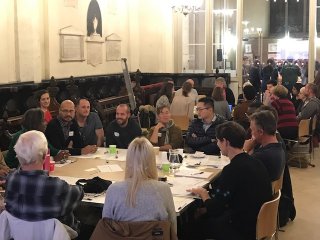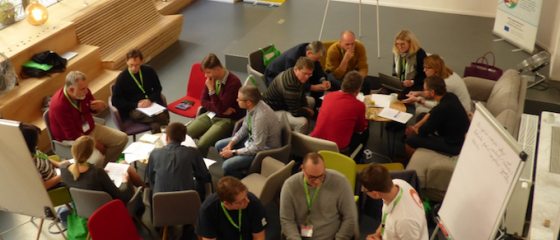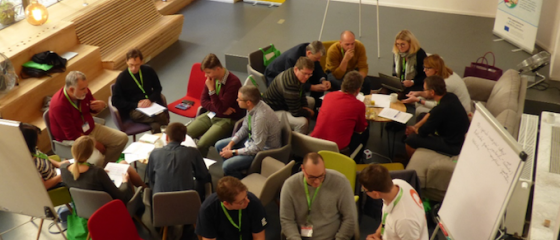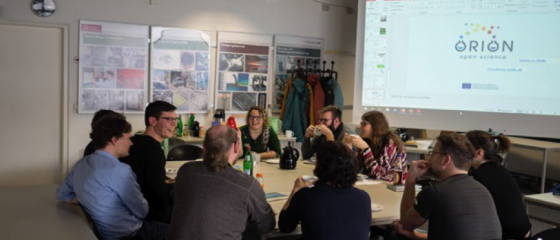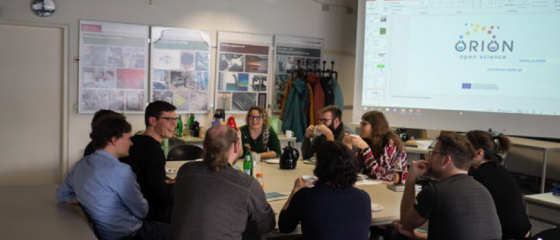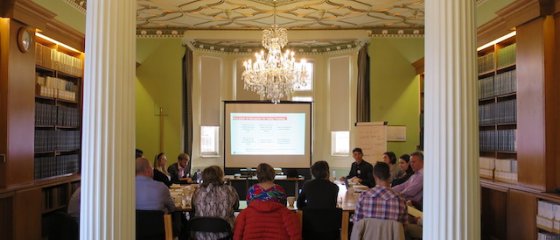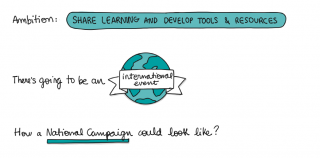genome editing
What do the public think about genome editing? That’s what we hope to find out through our public dialogue on genome editing which takes place in Stockholm on 8 February. The aim with the public dialogue is to discuss the risks and opportunities of disruptive technologies and identify any concerns the public might have.
What do the public think about genome editing? That’s what we hope to find out through our public dialogues on genome editing which takes place in Stockholm on 23 January and 8 February. The aim with the public dialogues is to discuss the risks and opportunities of disruptive technologies and identify any concerns the public might have.
Would you take daily inhalations to stay young? In her work “ÆON. Trajectories of Longevity and CRISPR,” the artist Emilia Tikka constructs a poetic scenario of a possible future. The installation is exhibited at the National Museum of Science and Technology in Stockholm from 23 January 2020.
What do the public think about genome editing? That’s what we hope to find out through our public dialogues on genome editing which takes place in Prague on 30 November. The aim with the public dialogue is to discuss the risks and opportunities of disruptive technologies and identify any concerns the public might have.
What do the public think about genome editing? That’s what we hope to find out through our public dialogues on genome editing which takes place in Prague on 19 and 30 of November. The aim with the public dialogues is to discuss the risks and opportunities of disruptive technologies and identify any concerns the public might have.
What do the public think about genome editing? That’s what we hope to find out through our public dialogues on genome editing which takes place in Berlin on16 November. The aim with the public dialogue is to discuss the risks and opportunities of disruptive technologies and identify any concerns the public might have.
What do the public think about genome editing? That’s what we hope to find out through our public dialogues on genome editing which takes place in Berlin on 6 and 16 November. The aim with the public dialogues is to discuss the risks and opportunities of disruptive technologies and identify any concerns the public might have.
What do the public think about genome editing? That’s what we hope to find out through our public dialogues on genome editing which takes place in Cambridge on October 24 and November 2. The aim with the public dialogues is to discuss the risks and opportunities of disruptive technologies and identify any concerns the public might have.
Do the public wish to be involved in the process of scientific research? If yes – how? These questions were asked in our public survey "Public attitudes to life sciences research in six European countries" and in the German and Swedish Science Barometers as well as in the Wellcome Trust monitor. The results from these studies will be presented at the session "Why should the public be engaged in Science?" at the Forum for Science Communication in Gothenburg on 3 April.
As part of the GEPES (Genome Editing Public Engagement Synergy) programme the National Co-ordinating Centre for Public Engagement (NCCPE) in UK is convening an online international symposium focusing on public engagement with genome editing on 21st November. Emma Martinez, project officer for open experiments and co-creation in the ORION project is one of the speakers.

